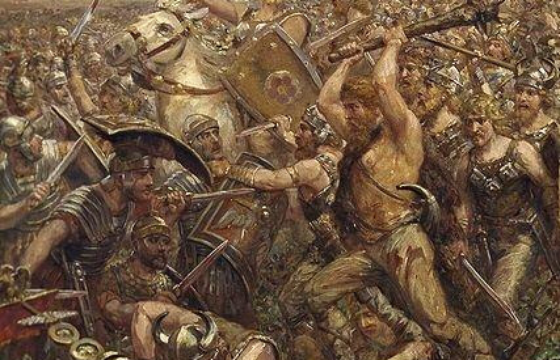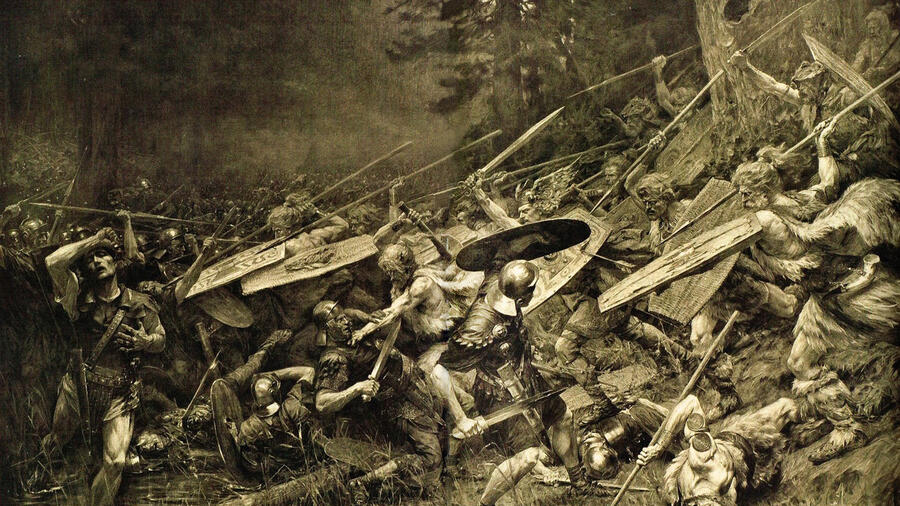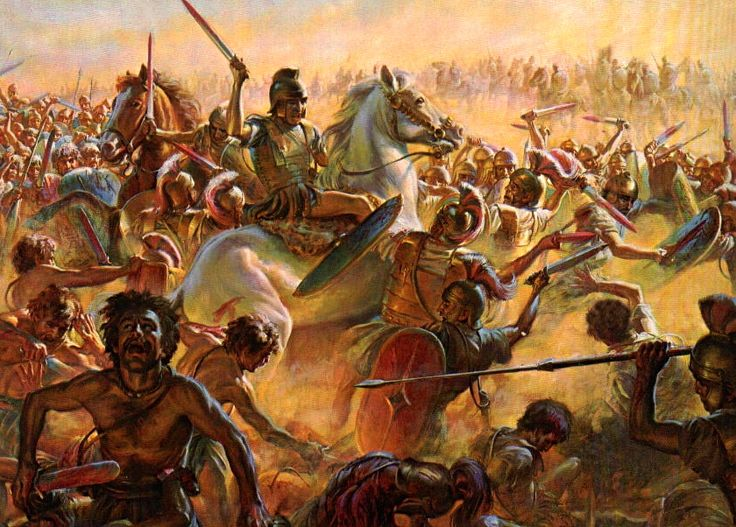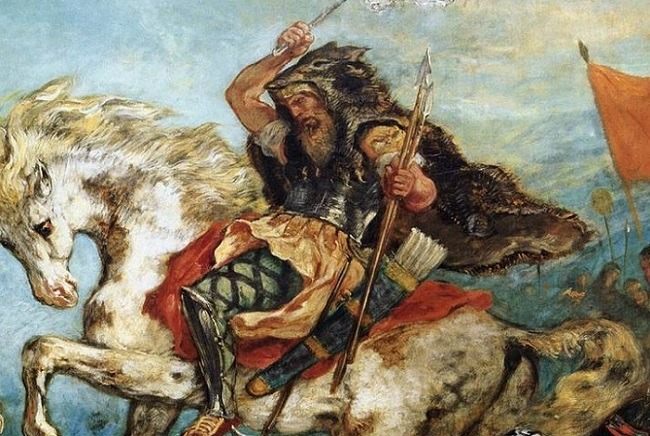𝐓𝐡𝐞 𝐬𝐨𝐜𝐢𝐨-𝐩𝐨𝐥𝐢𝐭𝐢𝐜𝐚𝐥 𝐬𝐲𝐬𝐭𝐞𝐦 𝐨𝐟 𝐨𝐮𝐫 𝐟𝐨𝐫𝐞𝐛𝐞𝐚𝐫𝐬 𝐚𝐧𝐝 𝐫𝐮𝐥𝐞𝐬 𝐫𝐞𝐠𝐚𝐫𝐝𝐢𝐧𝐠 𝐭𝐫𝐢𝐚𝐥𝐬.
In protohistorical societies and in antiquity it was the warriors who had political rights. This included active soldiers as well as veterans.
In protohistorical societies and in antiquity it was the warriors who had political rights. This included active soldiers as well as veterans.
The descriptions of Germanic warriors and their assemblies were given by Tacitus (Ger. 11-12) and Caesar (De Bello Gallico V,56). They are described as armed warriors, an armed assembly "armatum concilium" where the warrior aspect gave them rights to be there.
Warriors were the ones with a very important task in the community - to protect it with their lives. This is especially evident in the Iron Age when the warrior segment held the permanent place. In Latin "quirites" citizens and "quiris" spear have the same root.
The features of this system can very well be seen in Roman "comitia centuriata" and in Solon& #39;s reforms in ancient Greece where citizens were divided on the principle of census and the warrior obligation they had to fulfill.
I will illustrate the point of their trials with one example from Illyria. Rebellion against the Romans from 6-9 AD was led by two men both named Bato. One was from the tribe of Daesitiates and the other from the tribe of Breuci. The war is therefore knows as "Bellum Batonianum".
At one point in war, Bato the Breucian betrayed the other leader and made a deal with the Romans for which he was on trial.
"Later, when the Breucian was delivered, he took him and brought him before the army, and, when he had been condemned, put him to death on the spot."
"Later, when the Breucian was delivered, he took him and brought him before the army, and, when he had been condemned, put him to death on the spot."
This particular information shows how the process of trials went. The fate of the condemned wasn& #39;t decided by a leader but rather it was decided among the warriors themselves. This shows a certain amount of democracy among the warriors and their assemblies.
Warrior assemblies of Germanics also had judicial rights. There, the assembly can decide the fate of certain individuals brought upon trial, even ending with death (Tac. Ger. 12). It& #39;s the same parallel as we see in Illyria so it was probably a pan-European custom.

 Read on Twitter
Read on Twitter






